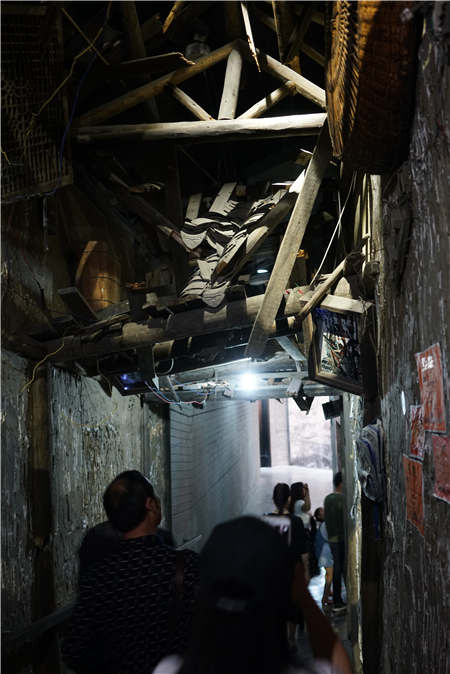'Had they got to me an hour later I would have been dead'
By Zhang Zefeng | China Daily | Updated: 2018-05-19 10:33

The sky seemed to darken, and a rumbling sound unlike anything Ma had ever heard before quickly grew louder and louder. Within seconds she was buried under the rubble of her newly built three-story home in Yingxiu, Wenchuan county.
Two huge slabs of concrete lay on her chest, and as the earth continued to shake in the minutes and hours that followed the rocks seemed to press down ever harder on her.
"My breathing became more difficult and faster," she says. "My body was numb. I felt no pain, and I had no strength to cry out."
After struggling for more than four hours in her dark hole she heard her sister-in-law calling out her name. The sister-in-law alerted several migrant workers of Ma's plight, urging them to help dig her out.
"Had they got to me an hour later I would have been dead," Ma says.
Ma, her face covered with dust, was traumatized and dehydrated, and five of her ribs were broken. She also had head and leg injuries.
"My mouth was parched and tongue scorched, and I had this terrible thirst."
She begged her rescuers for water, but fearing that she had internal injuries, they tried to withheld it from her.
Yingxiu was one of the worst-hit areas near the epicenter of the earthquake. The following day the Army mobilized 22 military and 12 civilian aircraft to ferry 11,420 soldiers to the province. By the morning of May 15 more than 130,000 soldiers were searching for survivors and going about the painstaking job of extricating them from rubble, as well as rapidly repairing roads to make the search and rescue effort easier.
Rain lingered over much of the quake-stricken areas over the following days. Once Ma was pulled from the rubble she was put in one of hundreds of makeshift tents, like thousands of other survivors. In many cases lying near them were the bodies of those who had not been as fortunate as them.
"I'm quite timid, and if anyone dies, I usually avoid going out at night," she says. "After the quake there were all these dead bodies lying next to me, but it did not bother. Ten years have gone by and I can finally recount this story without bursting into tears."
Quake survivors were ferried to hundreds of hospitals throughout China to receive professional medical treatment.
Months after the quake, in 2009, Sichuan authorities estimated that more than 4.45 million injured people were still being treated in the province. Another 143,367 had ben taken elsewhere for treatment. More than 7,000 people were said to be suffering from long-term physical or mental disablement.
























